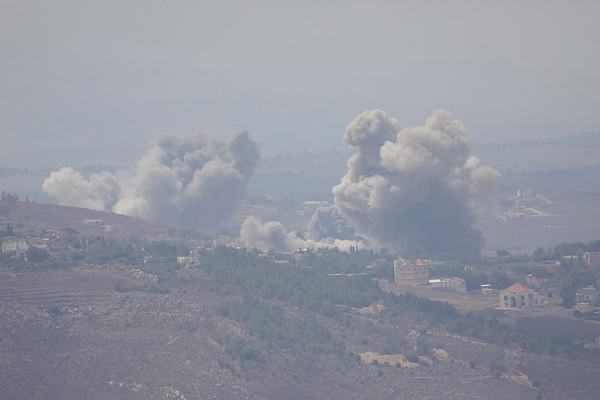Israel launched its most extensive wave of airstrikes against Hezbollah targets on Monday, resulting in at least 100 deaths, according to Lebanese sources, and issued warnings for civilians to evacuate areas where Hezbollah weapons are believed to be stored, reports Reuters.
This marked a significant escalation in cross-border conflict, as Israel shifted its focus to the northern border with Lebanon, where Hezbollah has been launching rockets in support of Hamas, which is engaged in a war with Israel in Gaza.
“We are intensifying our attacks in Lebanon. These actions will continue until our goal of returning northern residents safely to their homes is achieved,” Israeli Defence Minister Yoav Gallant said in a video released by his office. “These are times when the Israeli public must show resilience.”
Gallant’s comments followed airstrikes on Hezbollah targets in Lebanon’s south, the Bekaa Valley, and near the Syrian border. Lebanon’s health ministry reported that at least 100 people, including women, children, and medical personnel, were killed in the attacks, with over 300 injured.
Israeli military spokesperson Avichay Adraee confirmed that more than 300 Hezbollah targets had been hit. In response, Hezbollah claimed responsibility for launching rockets at Israeli military positions.
The airstrikes followed recent events where Hezbollah’s Secretary General Hassan Nasrallah described an unprecedented attack on the group, after thousands of communication devices, including pagers and walkie-talkies, were destroyed in an operation widely attributed to Israel, though unconfirmed.
A separate Israeli airstrike on Beirut’s southern suburbs last Friday reportedly killed 45 people, including senior Hezbollah commanders Ibrahim Aqil and Ahmed Wahbi. Hezbollah confirmed that 16 of its members were among the dead.
Meanwhile, Israeli ambulance services reported that one person was slightly injured by shrapnel from a rocket attack in northern Israel.
The escalating conflict also featured psychological warfare. Imad Kreidieh, head of Lebanese telecom company Ogero, reported that more than 80,000 automated calls warning people to evacuate were detected, though not all were answered. Kreidieh labelled the calls as an attempt to spread chaos.
On Monday, residents in southern Lebanon received similar evacuation warnings, including in Beirut, with some calls advising people to distance themselves at least 1,000 meters from Hezbollah posts. Lebanon’s Information Minister Ziad Makary dismissed the calls, calling them a “psychological war.”
Residents in Beirut expressed fear of a full-scale war, with some saying they expected a stronger response from Hezbollah to the Israeli strikes. Israeli military spokesperson Rear Admiral Daniel Hagari also confirmed that evacuation warnings were being broadcast across Lebanon in Arabic.
Israeli warplanes intensified strikes on Monday, targeting towns along the southern Lebanese border and areas farther north. A rocket hit an uninhabited area near the port city of Byblos, an unusual location for airstrikes, falling between Christian and Shi’ite villages. Warplanes also struck the Hermel region in northern Lebanon, according to Hezbollah’s al-Manar TV.

